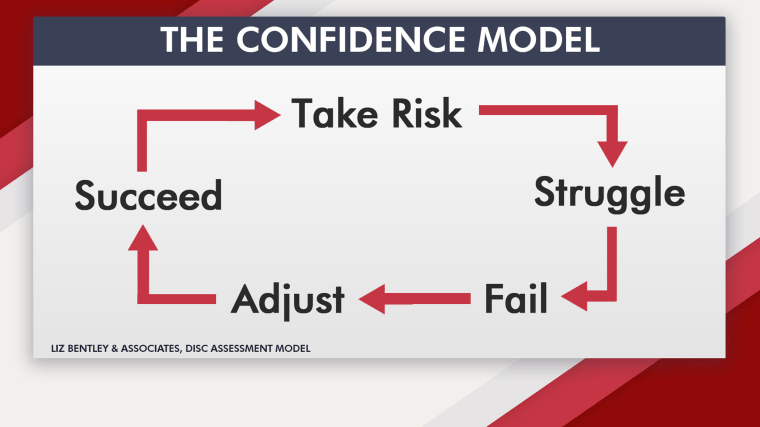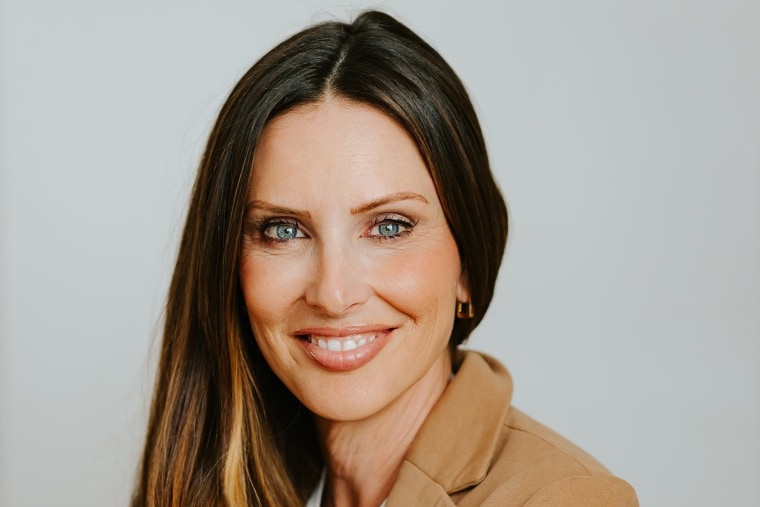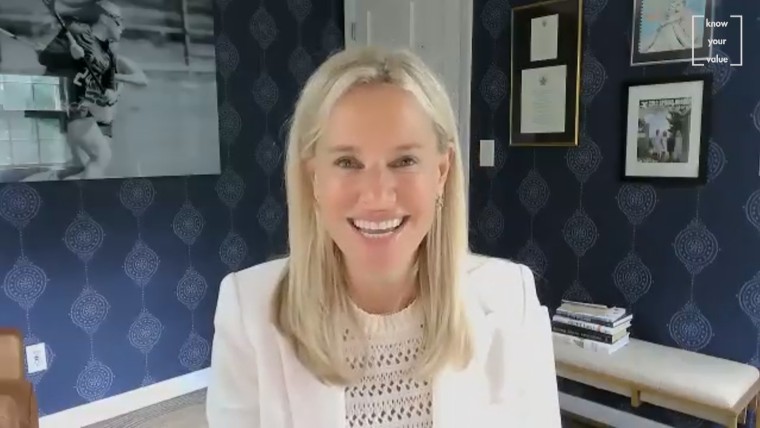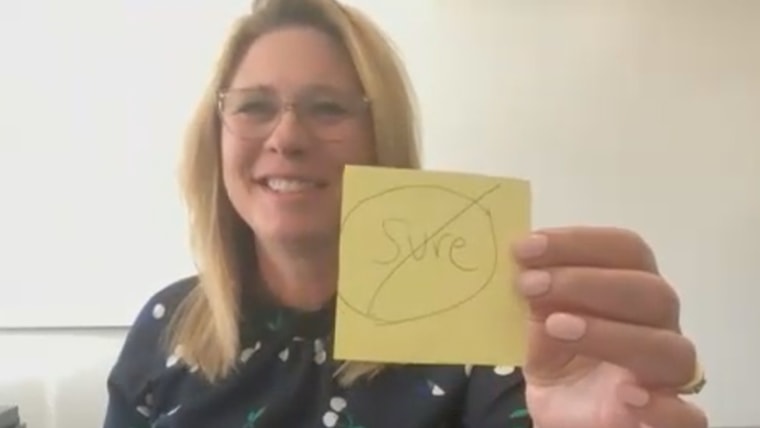Deviree “Dev” Vallejo, a seasoned real estate broker from Denver, reached out to me back in 2018 to help her scale up her business. At a glance Dev seemed like she had it all – brains, beauty and charisma – but what I uncovered through coaching her was a classic case of imposter syndrome.
When Dev and I started, she was already considered an elite agent but knew she could become more. Specifically, Dev couldn’t understand why she would go from strong to insincere in a nanosecond. It negatively impacted her life and she wanted to change that behavior pattern. While she was no stranger to self-help, having worked with therapists and coaches previously, they hadn’t cracked the code.
To start, I had Dev take a DISC behavioral assessment. It’s a psychological tool used to measure how the brain absorbs information and creates the behaviors that define your personality type (strengths, weaknesses, stressors, conflict management style).
Dev’s assessment identified her as the Dominant (D) personality type with some Conscientious (C) qualities. On good days, she is logic-driven, strong-minded, goal-oriented, strategic and a clear communicator. She comes across as intelligent and confident: a natural leader.
On bad days, she is judgmental, insecure and takes everything too personally. She’s sensitive to feedback, shuts down and tends to blame or find fault with anyone who poses a threat.
The imprinting years
In my work, it is critical to understand my client’s imprinting years: the first 10 years of life. These formative years create the blueprint of our character, dictate our mindset and set behaviors, both good and bad.
Dev grew up in a small family with one older brother in the suburbs of Dallas. She described her family as Catholic and unaffectionate. But she loved her childhood and life in Texas. Her father was dominant force in the family; she was close with her mother and had a good group of friends.
Dev described her younger self as “shy, smart and observational.” She felt her upbringing created a mindset that cycled through shame and guilt – and punished failure. To get affirmation, she excelled in school, achieving top grades.
In a quest for self-discovery as an adult, she made the decision to leave college and explore various service jobs such as bartending, hosting and waitressing. She tried some sales positions too, but didn’t find the right fit until she discovered a career in real estate. She loved that the business was centered on relationships and trust. Hustling to build a business from scratch, she started in a small sphere in Denver and it grew from there.
Building confidence by learning to fail
Upon first glance, Dev does not appear to suffer from a lack of confidence. But that was exactly her problem, so it was the first thing we tackled. I used a confidence model I created to help her visualize how to grow.

We become more confident by taking a risk and having some version of failure that pushes us to adjust, get feedback, and figure out how to succeed. In this process, failure is key!
Confidence is earned from doing hard things, not easy ones. When we finally succeed, we get a newfound belief in ourselves. This forms a resilient mindset to tackle difficult situations knowing that we can have success if we work hard and keep adjusting.
Dev’s imprinting years taught her that failure equated with shame, which led to a painful cycle of guilt and suffering. This led her to see even the smallest criticism negatively. As a child she had evaded failure through being good at school. This also worked for her as an adult as her high intelligence helped her business thrive.
However, when colleagues or clients challenged her, her confidence quickly diminished, giving way to fear. She became intimidated and resented them. She would stop listening, and internally criticized them. Dev was battling imposter syndrome. She appeared to have it all, but believed she didn’t belong and feared being exposed.
She couldn’t get her business to the next level without fixing this problem and building real confidence. To do this, Dev needed to get vulnerable and see the truth. The issue wasn’t that her clients were difficult, it was her!
Mindset shift: Letting go of the need to be ‘smart’
To shift Dev’s mindset about the fear of failure, I discussed how her need to be smart was actually her blind spot. A blind spot is a fault others can see in you but you can’t see in yourself. I often see clients who grew up thinking they were “smart” create self-limitations and insecurity.
Motivated by the fear of not being perceived as smart, they avoid risk, resist change, dislike being challenged, focus on inaccuracies in feedback and don’t put effort into areas that need improvement. For Dev, her version of self-sabotage was “not trying” because if she didn’t try then technically, she didn’t fail.
By recognizing her fears were rooted in her need to look smart, she could shift her mindset on what being smart really meant: the ability to learn, struggle, adjust, and improve. Dev began to see her work very differently. She learned to separate herself from her transactions, not take things so personally, and instead make sure she had done everything possible while seeking opportunities to learn. Now, if she didn’t close a deal, she did not see it as a personal failure, but a situational one.
Mindset shift: Clearing the way for empathy
To further this change, we discussed the importance of empathy. Empathy is our ability to let go of our perspective to genuinely understand others. Dev was naturally empathetic but when she felt threatened that emotion got highjacked.
For example, she’d take her clients’ complaints personally, making it about her and not them. While she might fix their problem, for her it was emotionally exhausting. By understanding her fear of failure, she calmed it and accessed her empathetic emotions. This made a huge shift in her confidence and happiness. She genuinely enjoyed her connection to others.
Stepping into her power
Letting go of her need to be right pushed Dev’s ego out of her way. It opened her ability to take risks and fail without defaulting to shame and guilt. It rewired her thinking about failure and helped her embrace feedback so she could make the necessary adjustments to succeed, which led to greater confidence and an overall feeling of belonging.
Dev also uncovered that her newfound confidence impacted her entire life. Her relationships with her husband and children shifted positively. Struggles she had in her personal life improved dramatically.
She now has a network of top agents across the country and truly knows that her abilities in all areas of her life are limitless.


